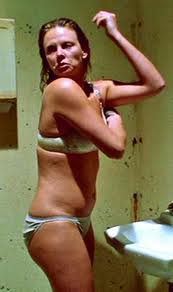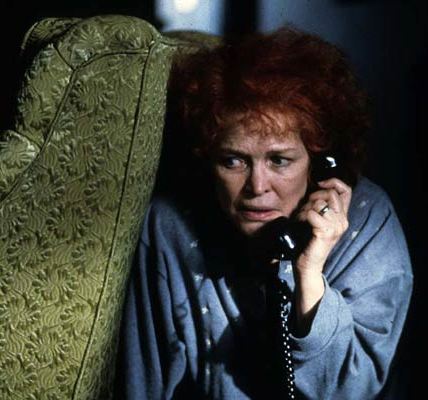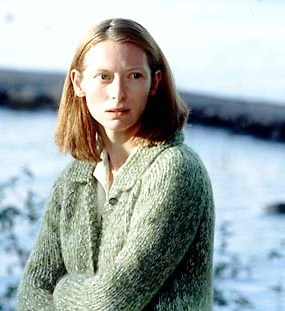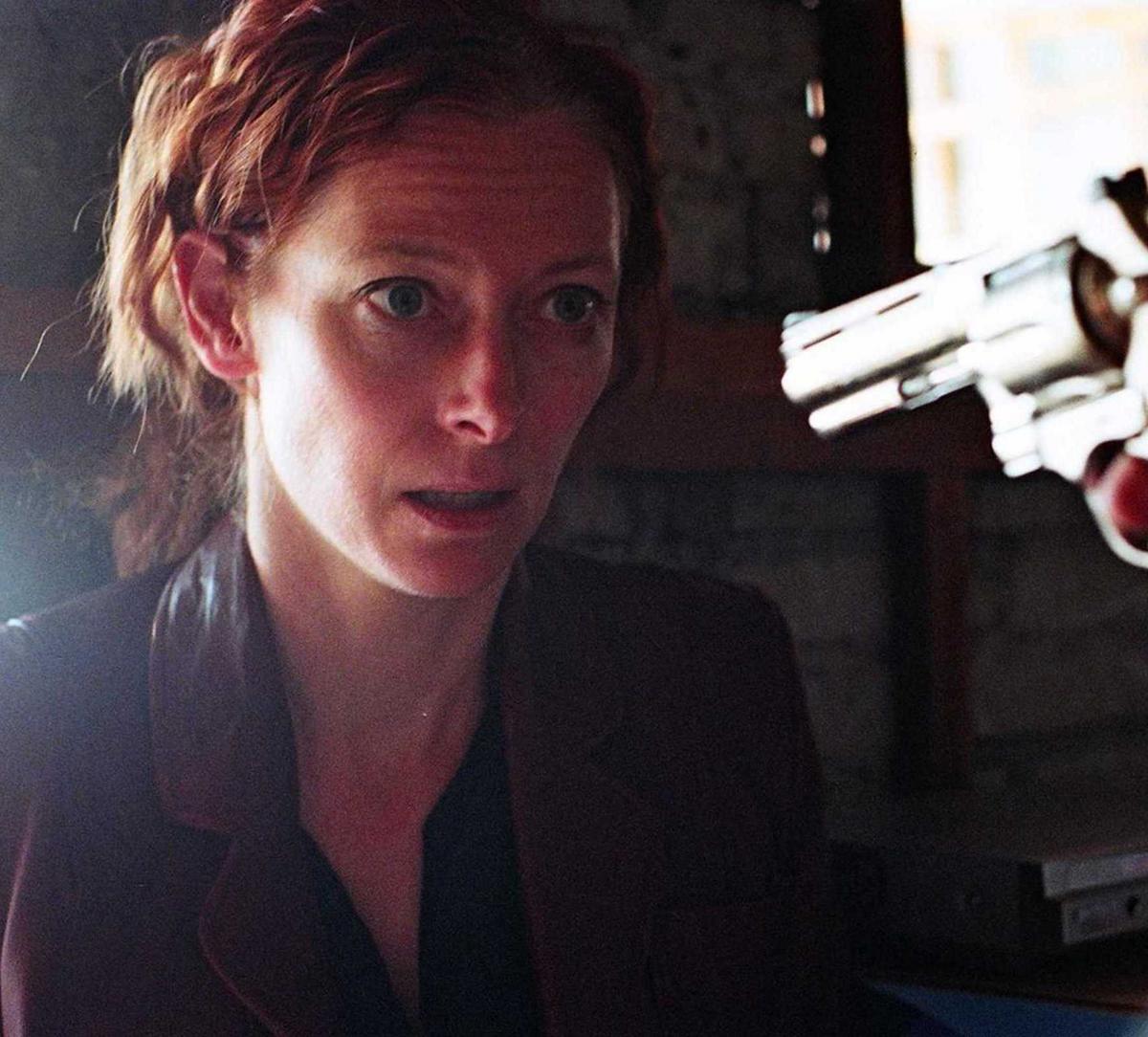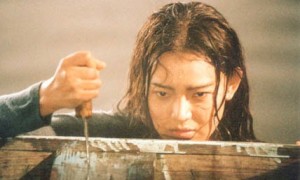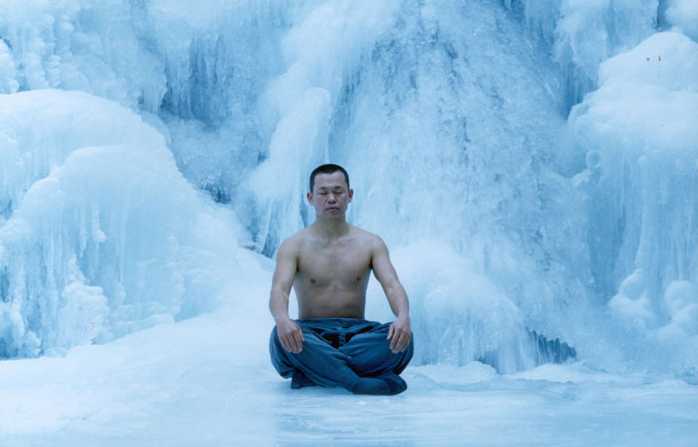
Spring, Summer, Fall, Winter… and Spring (2003, South Korea) – Kim Ki-Duk’s transforming experience can be carried with you in your heart and mind, day to day, for now and for the future, from birth to old age. After seeing it, and letting yourself digest it, the euphoria of discovery might be your rebirth. In the world’s most faraway location, set on a Buddhist pagoda floating on a lake, a monk (Yeong-su Oh) raises a young boy (Jong-ho Kim). We see their daily rituals and then we see broken rituals. As the seasons pass, the years leap ahead too. We witness the faults of the young boy, who becomes a young man of questionable obedience, and then his journey back to renewal. We witness the joys of sex, the joys of solitude, and maybe the pain that lies in-between the disparity. We observe the value of self-purpose and destiny, the value of waiting years for a revolving door to happen, and finally, penance. This is a film that grasps the elusive meaning of inner peace. The best film of the decade. Very well my vote for the best film ever made, tapping such historic cinematic milestones as “2001: A Space Odyssey,” “GoodFellas” and “Citizen Kane” now as my runners-up.
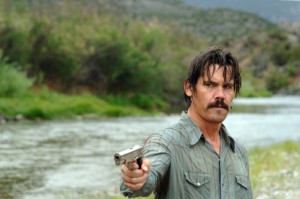 No Country for Old Men (2007) – Sounds like a 180-degree antithesis of the Kim Ki-Duk film. “Spring” was about confronting conflicts and violence, and then transcending it. The Coen Brothers film is about where and how violence mutated and pervaded into our contemporary times. For all those people who couldn’t grasp the ending it’s this: Tommy Lee Jones’ Sheriff Bell is disillusioned that he never found God in old age and that retirement before professional closure will indefinitely haunt him. Then there’s the matter of the satchel that caused the killing spree, the film never says outright who ended up with it, but the answer is right there: Who would give a ten-year old boy a hundred dollar bill (following the car accident), if you didn’t have $2 million to spare? Long after the story’s crucial events have passed, serial killer Anton Chigurh (Javier Bardem) is assumed to continue his life attracting violence, and wreckage, wherever he goes. It’s part of his chiseled and engraved nature. Just as it is written in Llewelyn Moss (Josh Brolin) that drinking and cheating on his wife is his engraved nature. The paradox of fatalism and predestination makes this perfectly shot and structured Coen Brothers’ film their magnum opus.
No Country for Old Men (2007) – Sounds like a 180-degree antithesis of the Kim Ki-Duk film. “Spring” was about confronting conflicts and violence, and then transcending it. The Coen Brothers film is about where and how violence mutated and pervaded into our contemporary times. For all those people who couldn’t grasp the ending it’s this: Tommy Lee Jones’ Sheriff Bell is disillusioned that he never found God in old age and that retirement before professional closure will indefinitely haunt him. Then there’s the matter of the satchel that caused the killing spree, the film never says outright who ended up with it, but the answer is right there: Who would give a ten-year old boy a hundred dollar bill (following the car accident), if you didn’t have $2 million to spare? Long after the story’s crucial events have passed, serial killer Anton Chigurh (Javier Bardem) is assumed to continue his life attracting violence, and wreckage, wherever he goes. It’s part of his chiseled and engraved nature. Just as it is written in Llewelyn Moss (Josh Brolin) that drinking and cheating on his wife is his engraved nature. The paradox of fatalism and predestination makes this perfectly shot and structured Coen Brothers’ film their magnum opus.
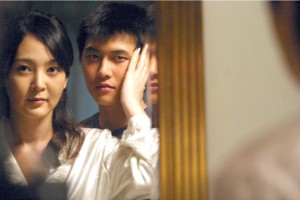 3-Iron (2005, South Korea) – Could be the most spiritually beautiful love story ever made. South Korean filmmaker Kim Ki-Duk is a master of silence (and meditation), it’s as if his characters have been so betrayed by their past that they have lost the willingness to speak anymore. So expect things quiet, but acute gestures and aware emotions. In this humane meets the divine fable, a young drifter breaks into people’s homes not to rob but to live vicariously through others, an abused wife seeking solace away from her terminally unhappy marriage joins him on his expeditions. Their truest selves coalesce beautifully in their vagabond odyssey, sharing an equanimity that is told almost entirely in body language.
3-Iron (2005, South Korea) – Could be the most spiritually beautiful love story ever made. South Korean filmmaker Kim Ki-Duk is a master of silence (and meditation), it’s as if his characters have been so betrayed by their past that they have lost the willingness to speak anymore. So expect things quiet, but acute gestures and aware emotions. In this humane meets the divine fable, a young drifter breaks into people’s homes not to rob but to live vicariously through others, an abused wife seeking solace away from her terminally unhappy marriage joins him on his expeditions. Their truest selves coalesce beautifully in their vagabond odyssey, sharing an equanimity that is told almost entirely in body language.
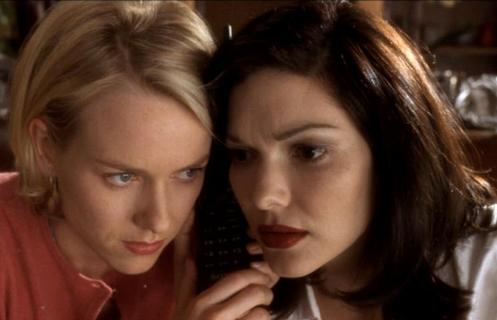 Mulholland Dr. (2001) – In the opening image a mythical old-fashioned notion of Hollywood is fancied, the kind that doesn’t exist anymore. Introduced are Naomi Watts, as Betty, the dreamer, and, Laura Elena Harring, as the woman of desire. What most people didn’t understand is that the movie is a dream until it wakes up at just under the two hour mark. We then meet our true heroine, not a pretty Dixie but a woman mired in shabbiness and delusion. The trance-out cowboy scene, the lecherous near carnal violation-audition scene, the Silencio… Leave it to David Lynch to prove surrealism can break the outer stratosphere of what is artistically possible. One of the supreme mindbenders of our time.
Mulholland Dr. (2001) – In the opening image a mythical old-fashioned notion of Hollywood is fancied, the kind that doesn’t exist anymore. Introduced are Naomi Watts, as Betty, the dreamer, and, Laura Elena Harring, as the woman of desire. What most people didn’t understand is that the movie is a dream until it wakes up at just under the two hour mark. We then meet our true heroine, not a pretty Dixie but a woman mired in shabbiness and delusion. The trance-out cowboy scene, the lecherous near carnal violation-audition scene, the Silencio… Leave it to David Lynch to prove surrealism can break the outer stratosphere of what is artistically possible. One of the supreme mindbenders of our time.
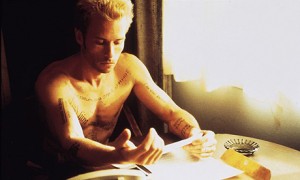 Memento (2001) – It’s like a knotty Robert Matheson or Ray Bradbury story redressed as an expressionistic film noir, with black and white intervals that are all about the tonality of a man’s mental torment. Short term memory man Leonard Shelby (Guy Pearce), using tattoos as his memory roadmap, dedicates vengeance to his wife’s death but doesn’t figure that he has sucked himself into an anguished circular vortex. As the ultimate puzzle movie to challenge the notion of Attention Deficit Disorder moviegoing, it could take countless hours to tidy up the motivations of its characters and yet it all fits together in mesmerizing style by director Christopher Nolan.
Memento (2001) – It’s like a knotty Robert Matheson or Ray Bradbury story redressed as an expressionistic film noir, with black and white intervals that are all about the tonality of a man’s mental torment. Short term memory man Leonard Shelby (Guy Pearce), using tattoos as his memory roadmap, dedicates vengeance to his wife’s death but doesn’t figure that he has sucked himself into an anguished circular vortex. As the ultimate puzzle movie to challenge the notion of Attention Deficit Disorder moviegoing, it could take countless hours to tidy up the motivations of its characters and yet it all fits together in mesmerizing style by director Christopher Nolan.
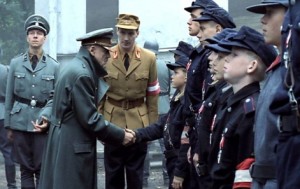 Downfall (2005, Germany) – Thunderously violent docudrama of Hitler’s final days and the fall of the Third Reich, and fearlessly, shows the viewer the face of evil at its peak of desperation. Bruno Ganz is the first actor that has ever successfully taken on the impossible task of portraying the 20th century’s greatest monster – his alternating measures of courtliness and impromptu rage as Adolph Hitler in his last days as Fuhrer is astonishing. What shocked me was the epidemic of suicides within Hitler’s bunker by the end. Here is a conditioned mindset of the National Socialist party who came to the conclusion that reaching the end of the war meant surrendering to self-imposed death was a necessity.
Downfall (2005, Germany) – Thunderously violent docudrama of Hitler’s final days and the fall of the Third Reich, and fearlessly, shows the viewer the face of evil at its peak of desperation. Bruno Ganz is the first actor that has ever successfully taken on the impossible task of portraying the 20th century’s greatest monster – his alternating measures of courtliness and impromptu rage as Adolph Hitler in his last days as Fuhrer is astonishing. What shocked me was the epidemic of suicides within Hitler’s bunker by the end. Here is a conditioned mindset of the National Socialist party who came to the conclusion that reaching the end of the war meant surrendering to self-imposed death was a necessity.
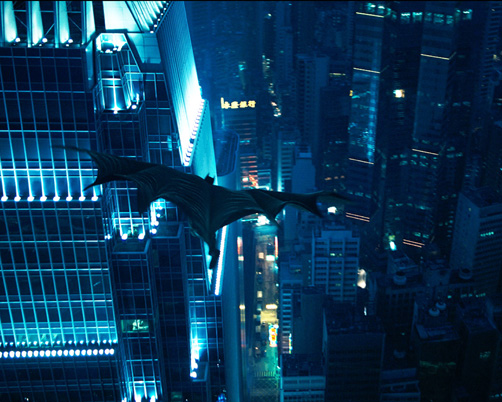 The Dark Knight (2008) – Your adrenaline is drumming incessantly, but that’s probably due to the immediacy of conflicts: There are always three or four noir-flavored plots toppled on top of each other simultaneously. Christopher Nolan’s sophisticated Batman epic is all throbbing operatic action, drama and music synthesis, featuring startling spirals into downfall and consequence. Here is promise that a superhero movie can actually be more capable of being more dramatically dynamic and seismic in tragic catastrophe than the ordinary “prestige” drama. Christian Bale is a malcontent, self-chastising crusader who never feels that he has done enough as a hero for the people. And Heath Ledger’s Joker is such a disturbing creation that he hotwires into your nerves – he’s a godless anarchist, irredeemably and rigidly evil, rendering an entire city under duress.
The Dark Knight (2008) – Your adrenaline is drumming incessantly, but that’s probably due to the immediacy of conflicts: There are always three or four noir-flavored plots toppled on top of each other simultaneously. Christopher Nolan’s sophisticated Batman epic is all throbbing operatic action, drama and music synthesis, featuring startling spirals into downfall and consequence. Here is promise that a superhero movie can actually be more capable of being more dramatically dynamic and seismic in tragic catastrophe than the ordinary “prestige” drama. Christian Bale is a malcontent, self-chastising crusader who never feels that he has done enough as a hero for the people. And Heath Ledger’s Joker is such a disturbing creation that he hotwires into your nerves – he’s a godless anarchist, irredeemably and rigidly evil, rendering an entire city under duress.
 The Three Burials of Melquiades Estrada (2005) – Border patrol cop with a racist callousness shoots Melquiades, a rather insignificant person, but even an insignificant person deserves to be treated to an honorable burial. Tommy Lee Jones, as a ranch hand, makes sure this deed is respected. Thematically rich, particularly sprawling when it travels horseback in the open range, with a shrewdly constructed backwards and forwards timeline that recalls “Pulp Fiction” or “Amores Perros” for the purpose of turning introduced small events, when progressed, into something of larger scope. Jones directed, with a decree that living on the fringes can be a beautiful and transforming place.
The Three Burials of Melquiades Estrada (2005) – Border patrol cop with a racist callousness shoots Melquiades, a rather insignificant person, but even an insignificant person deserves to be treated to an honorable burial. Tommy Lee Jones, as a ranch hand, makes sure this deed is respected. Thematically rich, particularly sprawling when it travels horseback in the open range, with a shrewdly constructed backwards and forwards timeline that recalls “Pulp Fiction” or “Amores Perros” for the purpose of turning introduced small events, when progressed, into something of larger scope. Jones directed, with a decree that living on the fringes can be a beautiful and transforming place.
 Crouching Tiger, Hidden Dragon (2000) – Exquisitely photographed martial arts abound in this landmark mythology fantasy where swordsmen leap and fly all in the pursuit of an invaluable master’s sword, with forbidden love as a distressed undercurrent and sweeping vistas as its prevailing eye candy. Zhang Ziyi is the fiery understudy trading sedentary aristocracy for wild escapade, and Michelle Yeoh is the aging woman hero who guides with a patient hand. Other films of the genre have attempted more in terms of scaling hefty armies for widescreen combat, but no other picture has mastered the art of finesse to such dazzling perfection.
Crouching Tiger, Hidden Dragon (2000) – Exquisitely photographed martial arts abound in this landmark mythology fantasy where swordsmen leap and fly all in the pursuit of an invaluable master’s sword, with forbidden love as a distressed undercurrent and sweeping vistas as its prevailing eye candy. Zhang Ziyi is the fiery understudy trading sedentary aristocracy for wild escapade, and Michelle Yeoh is the aging woman hero who guides with a patient hand. Other films of the genre have attempted more in terms of scaling hefty armies for widescreen combat, but no other picture has mastered the art of finesse to such dazzling perfection.
Requiem for a Dream (2000) – Four descend into a degradation vortex, with director Darren Aronofsky not so much tracking them as he does wiring the viewer into their subjective head rush. The “hip-hop” montages pioneered by Aronofsky, dislocates the characters while at the same time piping you into decadent exhilaration. I can’t think of a another movie that puts on such an intense hypnotic spell on the viewer’s brain, or another movie that so uncompromisingly depicts addicts surrendering their eternal souls for a fix. This is the only place that I can say that percussive violin music, by Clint Mansell, is lacerating.
Sideways (2004) – Trouble and temptation in wine country, acerbic comedy that is both literate and broad. Paul Giamatti is the self-doubting loser Miles, Thomas Hayden Church is the egotistical womanizer Jack looking to score before his wedding. Arguably a scrutiny of why good guys make friends with bad guys except that, in all its beguiling grey area, Miles is too much of a grumpy kvetch to be good and Jack is too pathetic to be deemed totally bad. Ultimately, it is the best comedy made about that rare sparkling commodity: finding the perfect buzz. More than just a smart comedy, it is so satiated in real characters and true to life situations that it is without a doubt one of the best films of the decade.

Half Nelson (2006) – Ryan Gosling in one of the best performances that I have ever seen. Of all inspirational teacher movies, Gosling is the uppermost influential and impacting. Really, he’s the greatest teacher none of us ever had, likely because cynical district administrations would obstruct his kind of advanced learning. What’s devastating is that he is a crack addict by night who believes he has control on his recreational use, but like all crack chasers, he stops putting pride in the people that matter to them most. That he is willing to give up his on his special gift in empowering students is not only a shame but a misuse of a wonderful life – destroying opportunity to make a compositional shift in other peoples’ lives. Is it right to summon a student to help save him?
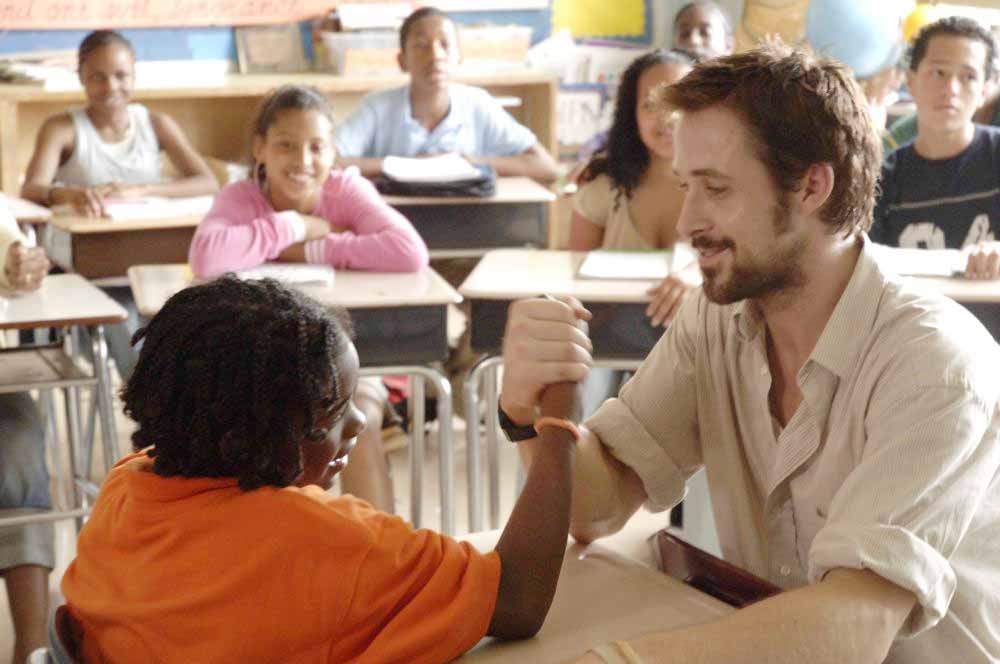
Monster (2003) – Aileen Wuornos spat-on childhood was so degraded that by the time she became a street whore it was not a stretch to her that murder of her johns was any less an uncommon act in her mind frame, Wournos bawling that the world has victimized her. In one of the all-time great performances, Charlize Theron transforms her hair, her face, her body and even her inner spirit order to extraordinarily become, from the inside-out, Wuornos as the volatile and deranged killer. Granted hard to take but brilliant. It’s too hard to ignore Theron’s magnificent performance.
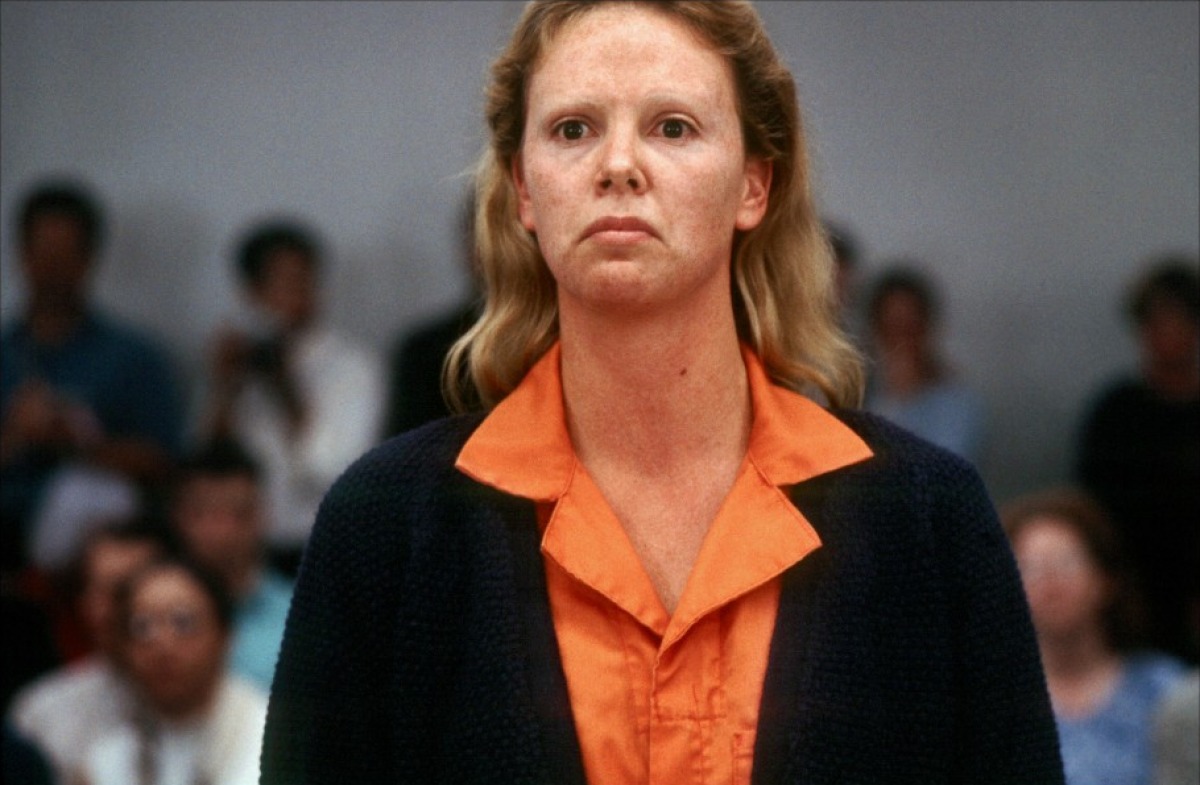
The Squid and the Whale (2005) – In a cogitative critic’s perspective, it is a mistake to seek out movies that only contain good and righteous characters as regular digestion. In this mordantly funny film, two selfish parents played by Jeff Daniels and Laura Linney split and then carelessly yank around their kids’ emotions, depicting this is utmost a movie cataloging about how to not live your life. Jesse Eisenberg is the older of two sons who learns he can step away from his dad’s dominion and make his own choices.
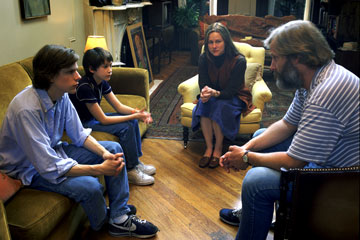
Eternal Sunshine of the Spotless Mind (2004) – Jim Carrey and Kate Winslet are the mismatched couple whom are so torn to pieces after a break-up that they decide, one at a time, to go in for a memory erasure procedure so they can forget the heartbreak. Behold the surreal dazzle, yet the uppermost achievement is its enchanting idea that romantic attraction is an instinct that is impossible to escape. Carrey and Winslet, are certainly an unlikely pair, yet it is cosmic destiny that they find each other despite all lobotomized obstacles.

A History of Violence (2005) – Dissection of violence and sexuality by David Cronenberg, that distinctive iconoclastic director of metaphors. Viggo Mortensen is perfect as the placid small town diner owner who proves to be unflinching in response to immediate violence. Yet his life succumbs to disillusion. His children come to not trust his identity, his wife feels intimately violated.
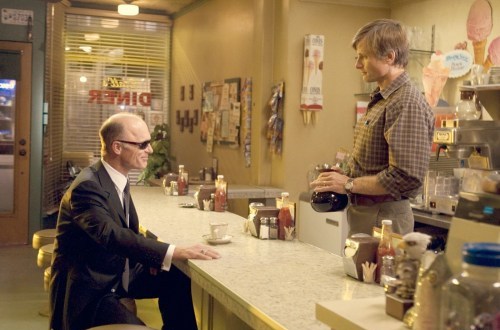
The Departed (2006) – Martin Scorsese’s rhapsodically orchestrated thriller set in underworld Boston where the character motives are double-sided, the violence is savage, the bons of loyalty tremulous and precarious, the dialogue chomp and bawdy. Scorsese is peerless in his juggling of multiple storylines, and from top to bottom his cast is hot-blooded bravado. His most fun movie in ages.
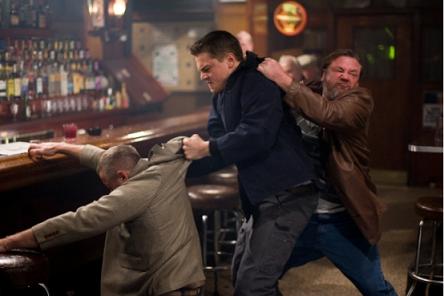
The Pianist (2002) – You’ve seen many other Holocaust films that span the war in broad strokes, this Roman Polanski film depicts the rare small pockets not seen in other war movies, following Wladyslaw Szpilman (Adrien Brody) as he makes move-and-hide refuge within the margins for the remainder of the war. Escaping the Nazi-controlled Krakow ghetto himself when he was a young child, Polanski conjured his earliest memories and interpolated them into his most personal film.
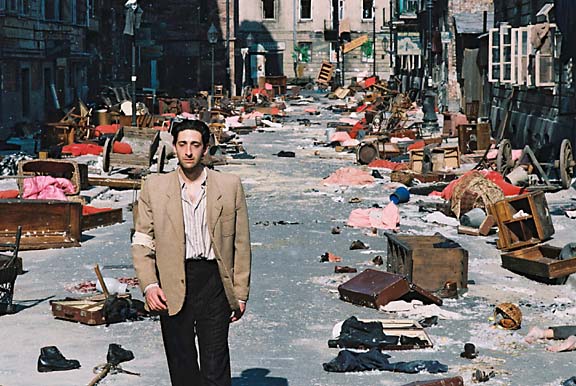
Spirited Away (2002, Japan) – Visionary Japanese anime is an imagination spectacle that out-rabbit-holes “Alice in Wonderland.” Centering on a bratty lost girl – she must learn to overcome her helpless, clingy dependence on her parents – astray in a strange world that blows your mind and hums your heart at the same time. The best animated film of the decade or in many decades going all the way back to the Walt Disney early years. Dubbed into English for U.S. release courtesy of Disney Pictures.
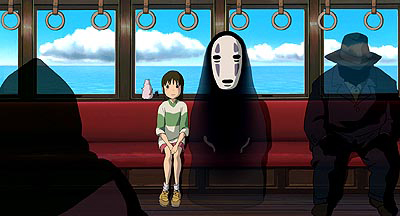
The Bow (2005, South Korea, pic bottom left) and The Isle (2000, South Korea, pic bottom right) – Two more by master Kim Ki-Duk. Both films deal with turning love into possession and reducing sex to body parts. Both films also contain, in their climaxes, shocking symbolic shots that will take days, if not weeks, to contemplate. You will by turn have feelings of love, hate, admiration, repulsion, curiosity and disturbance during two of Ki-Duk’s most challenging avante-garde pieces.
These directors each made one or two films that deserved consideration on the list but still nonetheless are all-star recommendations: Paul Thomas Anderson (“Punch-Drunk Love,” “There Will Be Blood“), Danny Boyle (“Sunshine,” “Slumdog Millionaire“), Paul Greengrass (“United 93,” “The Bourne Supremacy“), Richard Linklater (“School of Rock,” “Before Sunset“), and Steven Spielberg (“Minority Report,” “Munich“). Certainly these first-class filmmakers are among the best cinematic visionaries of the decade.
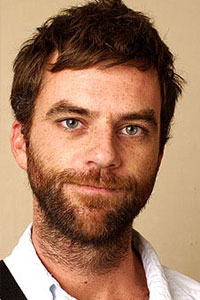
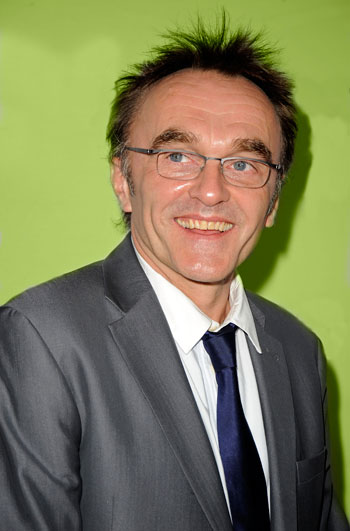
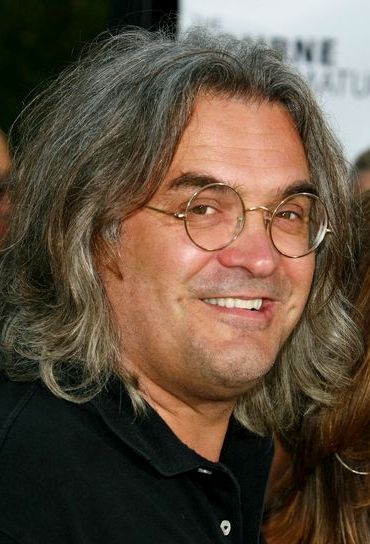
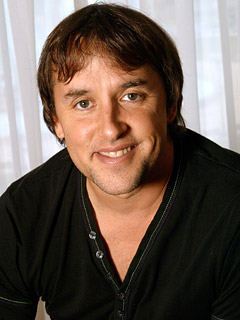
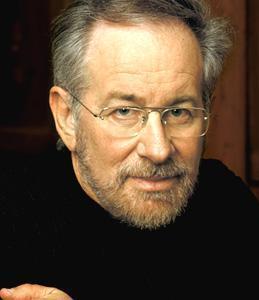
The greatest guilty pleasure of the decade is Mike Judge’s “Idiocracy.” There has never been an uglier film that I’ve loved more. But really, nothing to feel guilty about, because I really honestly do think that it is the “1984” of our generation. Mike Judge, meet George Orwell. It’s a stretch, but forgive me.
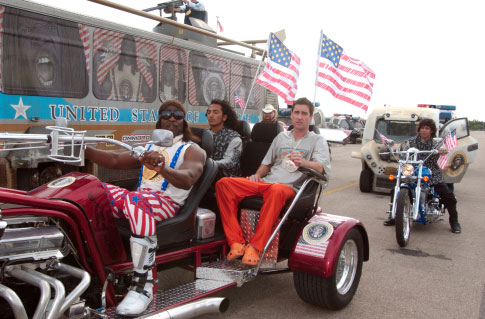
Thematic breakthrough in cinema: Chan Wook-Park’s “Oldboy” (South Korea) is the most influential/shocking thriller of our times with perverse twists that challenge storytelling taboos.
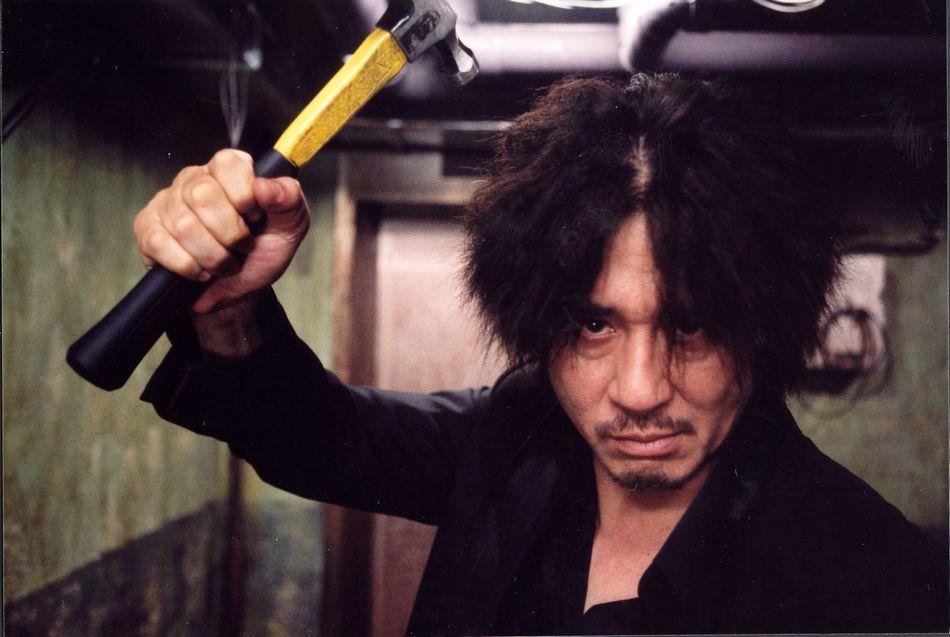
The best documentary films of the decade were “Mr. Death: The Rise and Fall of Fred A. Leuchter” and “An Inconvenient Truth.” View them both and decide for yourself which one is more important. I know, the first title sounds very unappetizing. That’s what made me stay away from it at first. When I actually watched it I changed my tune. But it’s tough, cerebral stuff.
Twenty-five terrific and/or underrated thrillers that haven’t been mentioned as of yet (what the hell, I will continue to order by preference): “Paranormal Activity,” “The Cell,” “Inglorious Basterds,” “The Deep End,” “Before the Devil Knows You’re Dead,” “Femme Fatale,” “A Dirty Carnival” (South Korea), “Kill Bill: Vol. 1 & 2,” “Sexy Beast,” “Inside Man,” “Spiderman 2,” “The Bourne Supremacy,” “The Bourne Ultimatum,” “Shutter Island,” “Birth,” “The Chaser” (South Korea), “Lady Vengeance” (South Korea), “Iron Man,” “Thirst,” (South Korea), “28 Days Later,” “The Mist,” “The Machinist,” “Sympathy for Mr. Vengeance” (South Korea), “Hard Candy,” “Lakeview Terrace.”
Best Male Performances of the Decade: Mickey Rourke in “The Wrestler,” Bruno Ganz in “Downfall,” Daniel Day-Lewis in “There Will Be Blood,” Ryan Gosling in “Half Nelson,” Philip Seymour Hoffman in “Before the Devil Knows You’re Dead.”

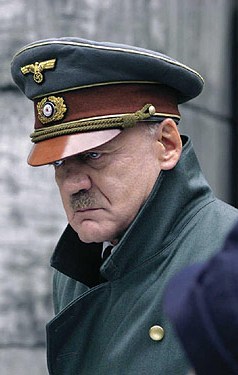
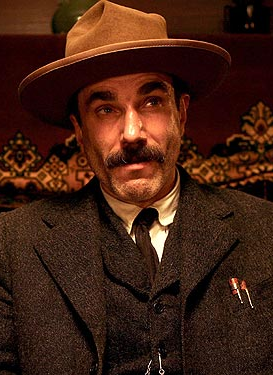

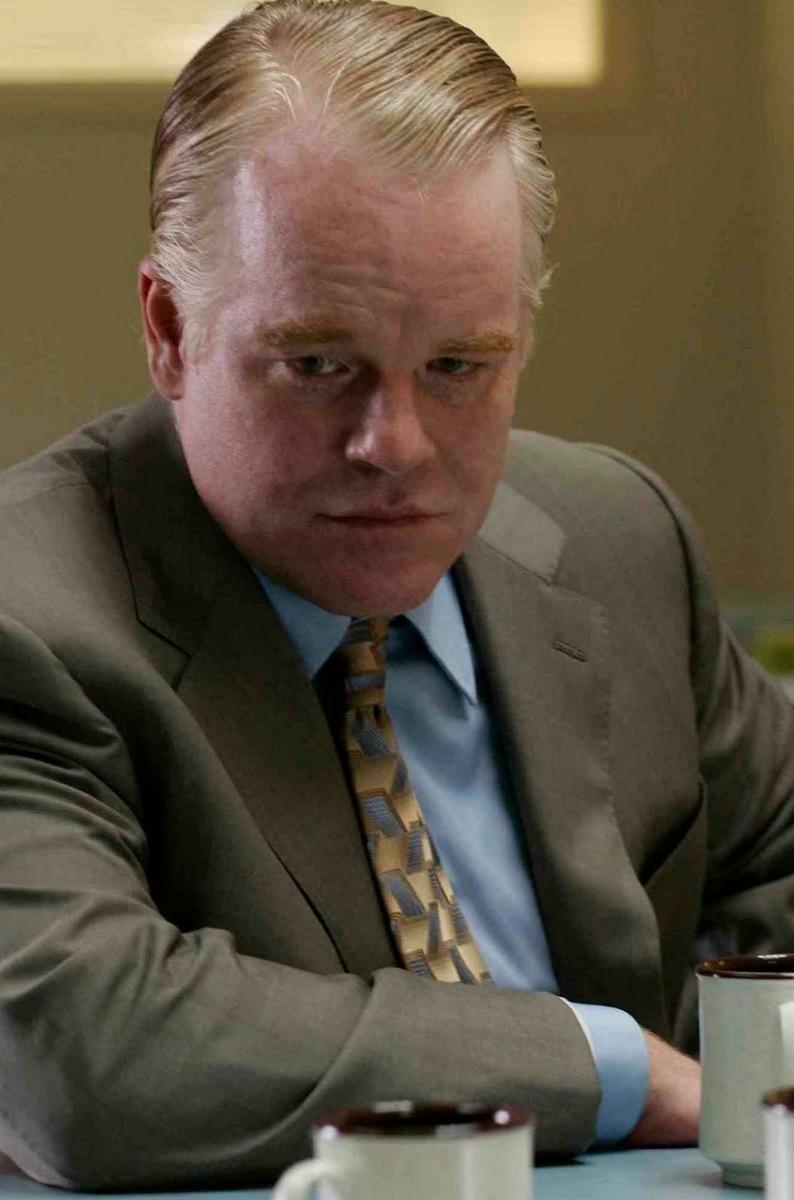
Best Female Performances of the Decade: Charlize Theron in “Monster,” “Ellen Burstyn in “Requiem for a Dream,” Tilda Swinton in “The Deep End,” Tilda Swinton in “Julia,” Naomi Watts in “Mulholland Dr.”
